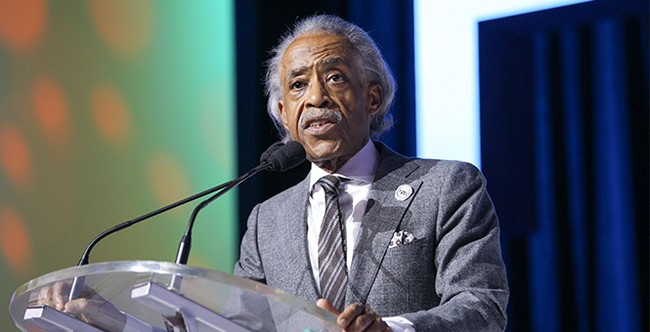
A venture capital group called Fearless Fund announced this week that it was settling a lawsuit brought by Edward Blum, one of the founders of the group that brought the lawsuit that eventually ended Affirmative Action. Fearless Fund had been offering a grant which was only available to black women. That grant has now been permanently shut down as part of the settlement.
The Fearless Fund will shutter its grant program for Black women to end a lawsuit with affirmative action opponents, marking a major retreat by diversity advocates grappling with a legal environment in which race-specific programs are proving nearly indefensible in certain jurisdictions.
Both parties said the Atlanta-based venture capital firm, which invests in early-stage companies owned by women of color, agreed to close the Fearless Strivers grant contest reserved for Black female-owned businesses. In June, a three-judge panel of U.S. Court of Appeals for the 11th Circuit temporarily enjoined the Fearless Fund from closing its application window and awarding the $20,000 grants, finding that doing so would probably discriminate on the basis of race.
“Race-exclusive programs like the one the Fearless Fund promoted are divisive and illegal,” said Edward Blum, the conservative activist behind the Fearless Fund lawsuit and architect of a broad campaign to dismantle diversity, equity and inclusion (DEI) initiatives. “Opening grant programs to all applicants, regardless of their race, is enshrined in our nation’s civil rights laws and supported by significant majorities of all Americans.”
The grant created by the Fearless Fund was always intended to spark a test case. The question was whether the Supreme Court’s Affirmative Action decision would be extended to cover the private sector. Both sides understood that’s what it was about. This story is from April:
In the coming months, a panel on the U.S. Court of Appeals for the 11th Circuit in Florida will decide whether to block the Atlanta-based Fearless Fund from awarding $20,000 grants to Black female-owned businesses while the case is litigated in trial court. The stakes could not be higher, as evidenced by the legal firepower lining up on both sides and the swarm of amicus briefs, illustrating the vastly different interpretations of the nature of discrimination, the role of history in shaping public policy and how civil rights should work in America.
“This is the life and blood of the civil rights movement,” the Rev. Al Sharpton said in an interview. If the Fearless Fund loses, the civil rights leader said, “we are the generation that lost what preceding generations provided for us.”…
Should Blum’s American Alliance for Equal Rights prevail, the case could have sweeping implications for any race-based initiative in the private sector, particularly grant programs, scholarships and other efforts with monetary benefits, according to observers on both sides of the issue. In less than a year, Blum’s legal nonprofit organization has reached settlements in about a half-dozen cases involving scholarships and fellowships at large law firms, as well as a Texas-based grant program for minority and women entrepreneurs. All agreed to drop racial criteria to resolve the discrimination claims.
So the left was determined to carve out space for race-exclusive programs and the courts said no to that effort. That decision could have been appealed but it would have gone to the Supreme Court where there is every reason to think they would lose. That’s why the Fearless Fund decided to settle the case and shutter the grant program before this became a settled issue for the entire country. Call this a strategic retreat.
“If we had fought, and Blum and them wanted to go all the way to the Supreme Court, we’d have lost the fight for generations,” Sharpton said…
“The impact of resolving this matter is significant in that a decision by two judges on the 11th Circuit will not bind the country,” said Alphonso David, president and CEO of the Global Black Economic Forum and an attorney in the case.
The CEO of Fearless Fund was also eager to spin this as a win:
Arian Simone, the founding partner and CEO of the Fearless Fund, considers the settlement a win, as the program was already at its conclusion and only one grant was left to award.
“If we have to forego that one grant to stay in business to deploy millions, that is definitely a win,” she said…
Simone said that the organization has accepted the settlement and has no plans to take the case to the Supreme Court since the risk was too high, and that the “consequence of that is too big.”
Putting all of the spin aside, this is another loss for DEI. If Fearless Fund wants to spread venture capital to businesses that need it, good for them, but they can’t make racially exclusive grants.








